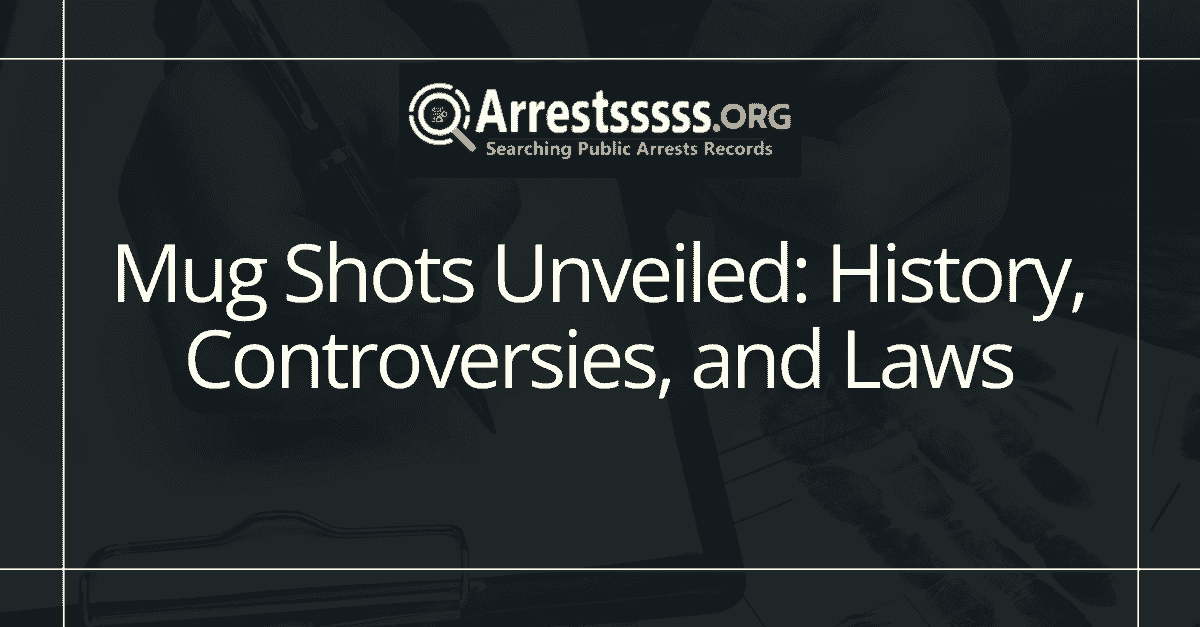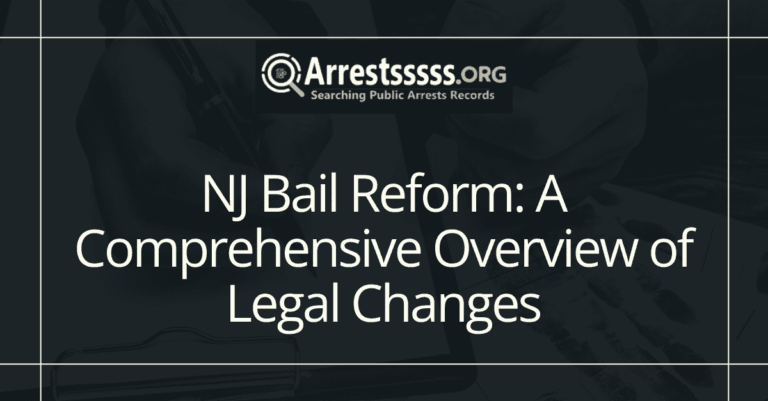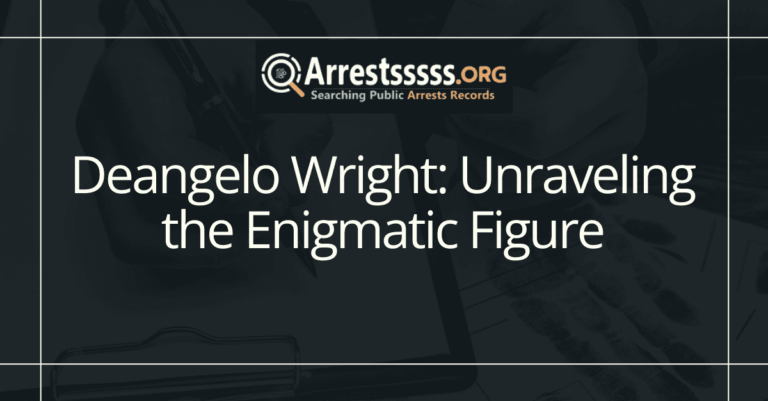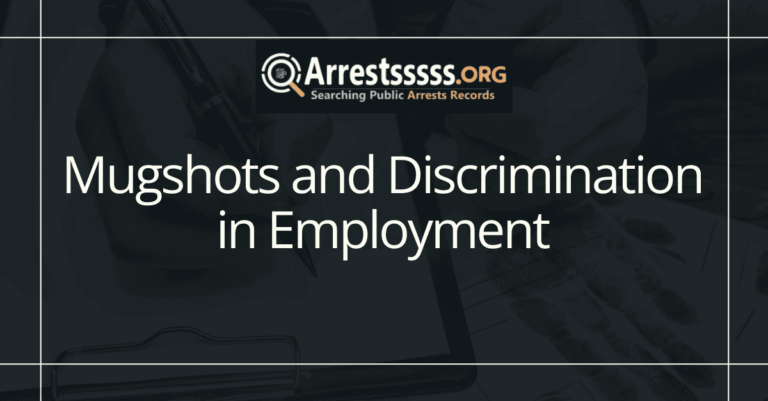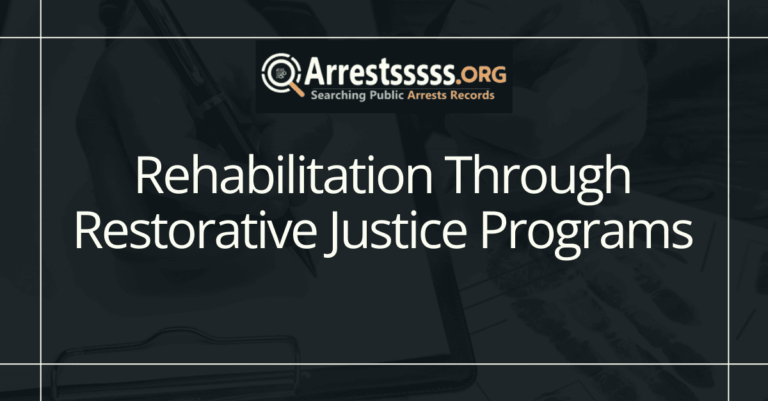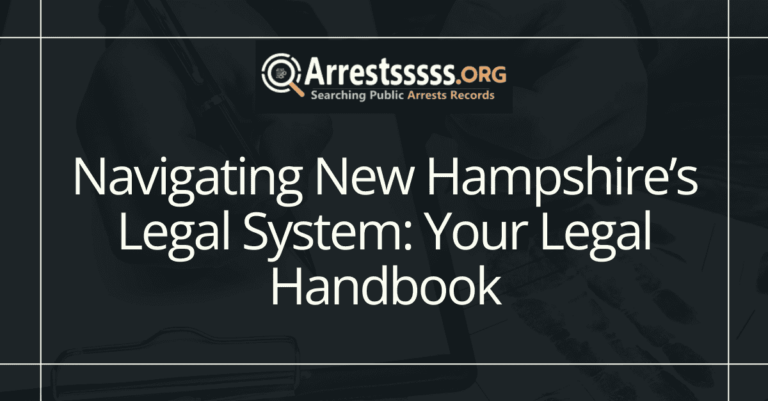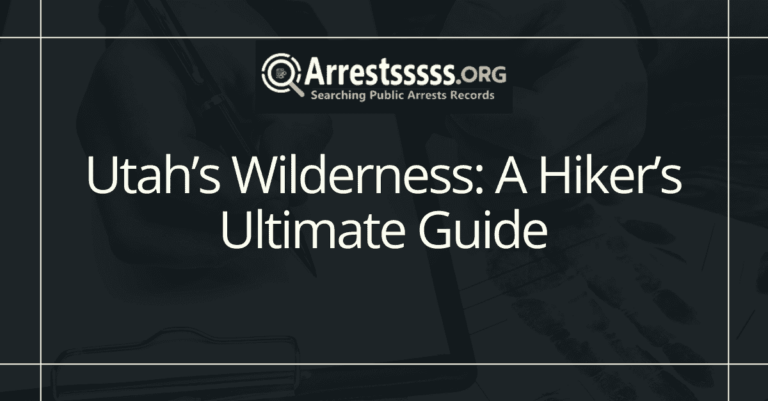Mug Shots Unveiled: History, Controversies, and Laws
When it comes to public arrests records, mug shots have always been a topic of fascination and controversy. These photographs capture the faces of individuals who have been arrested and provide a visual representation of their alleged crimes. In this article, we will delve into the history of mug shots, discuss the controversies surrounding their use, and explore the laws that govern their accessibility.
The History of Mug Shots
Mug shots have a long and intriguing history that dates back to the 19th century. The first recorded use of mug shots can be traced back to the Paris Police Department in the 1840s. These early photographs were taken as part of an effort by law enforcement agencies to document and classify criminals.
In the United States, the practice of taking mug shots gained popularity in the late 19th and early 20th centuries. By the 1920s, most police departments across the country were routinely photographing arrested individuals. Mug shots became an integral part of the criminal justice system, serving as a means of identification and aiding in the investigation of crimes.
The Controversies surrounding Mug Shots
While mug shots serve a practical purpose in law enforcement, they have also sparked numerous controversies. One of the main concerns is the potential for mug shots to perpetuate negative stereotypes and stigmatize individuals who have been arrested, regardless of their guilt or innocence.
Another controversy arises from the widespread availability of mug shots on the internet. Many websites have emerged that compile and publish mug shots, often accompanied by personal information and details of the alleged crimes. This practice has raised concerns about privacy and the potential for reputational damage, especially for individuals whose charges have been dropped or dismissed.
Laws Governing Mug Shots
The accessibility of mug shots is governed by a combination of federal and state laws. While there is no federal law specifically addressing the release of mug shots, some states have enacted legislation to regulate their dissemination.
One key consideration is the balance between the public’s right to access information and an individual’s right to privacy. Some states have implemented laws that restrict the dissemination of mug shots unless certain conditions are met, such as a conviction or a pending trial.
It is important to note that the laws regarding mug shots vary significantly from state to state. Therefore, it is crucial to familiarize yourself with the specific regulations in your jurisdiction when seeking access to public arrests records.
How to Get Public Arrests Records: Step-by-Step Guide
Now that we have explored the history, controversies, and laws surrounding mug shots, let’s discuss how you can obtain public arrests records.
Determine the Jurisdiction
Before you begin your search, it is essential to determine the jurisdiction where the arrest occurred. Public arrests records are typically maintained by the law enforcement agency responsible for the arrest, such as the local police department or county sheriff’s office.
Identify the Relevant Agency
Once you have identified the jurisdiction, you need to find the specific agency that holds the public arrests records. This information can usually be found on the agency’s official website or by contacting their administrative office.
Submit a Records Request
Most law enforcement agencies have a process in place for requesting public arrests records. This typically involves submitting a formal request, either in person, by mail, or through an online portal. Make sure to provide all the necessary information, such as the name and date of birth of the individual in question, to facilitate the search.
Pay the Required Fees
Some agencies may charge a nominal fee for processing the request and providing copies of the records. Make sure to inquire about any applicable fees and follow the payment instructions provided by the agency.
Await the Response
Once you have submitted your request and paid the required fees, you will need to await a response from the agency. The processing time may vary depending on the workload of the agency and the complexity of your request. It is advisable to follow up with the agency if you have not received a response within a reasonable timeframe.
FAQs
What is Mug Shots Unveiled?
Mug Shots Unveiled is a comprehensive online platform that delves into the history, controversies, and laws surrounding mug shots. Our aim is to provide users with a deeper understanding of this intriguing aspect of criminal justice.
Why are mug shots taken?
Mug shots are taken for identification purposes. They serve as a visual record of an individual’s appearance at the time of their arrest. Mug shots are important tools for law enforcement agencies to accurately identify suspects and aid in investigations.
Are mug shots considered public records?
Yes, mug shots are generally considered public records. However, the accessibility and use of mug shots vary depending on the jurisdiction. Some states have stricter regulations regarding their dissemination, while others make them readily available to the public.
Can mug shots be used for commercial purposes?
In most cases, using mug shots for commercial purposes is not recommended. While mug shots may be public records, their use for commercial gain can raise ethical and legal concerns. It is advisable to seek legal guidance before using mug shots in any commercial context.
What controversies surround the publication of mug shots?
The publication of mug shots has sparked various controversies. One major concern is the potential for negative impacts on an individual’s reputation, even if they are not convicted of a crime. Additionally, the commercialization of mug shots by certain websites has faced criticism for exploiting individuals’ personal information.
What are the laws regarding mug shot removal?
The laws regarding mug shot removal vary by jurisdiction. Some states have enacted legislation that allows individuals to request the removal of their mug shots from websites under certain circumstances. However, the effectiveness and enforceability of these laws can vary, and it is important to consult legal professionals for guidance.
Is it possible to have a mug shot removed from the internet?
While it is possible to have a mug shot removed from certain websites, it can be a complex and challenging process. Each website may have its own procedures and requirements for removal requests. Additionally, the permanence of digital information poses unique challenges in ensuring complete removal.
Can mug shots be used in discrimination?
Using mug shots as a basis for discrimination is highly discouraged and can be illegal. The utilization of mug shots to discriminate against individuals based on their race, gender, or other protected characteristics is a violation of civil rights laws. It is important to treat all individuals fairly and without prejudice.
How can I learn more about the history of mug shots?
To learn more about the history of mug shots, Mug Shots Unveiled provides a dedicated section that explores the evolution of mug shots and their significance in the criminal justice system. By browsing through our informative articles and resources, you can gain a comprehensive understanding of this fascinating subject.
Is Mug Shots Unveiled affiliated with any law enforcement agency?
No, Mug Shots Unveiled is an independent online platform that aims to educate and inform users about the various aspects of mug shots. We are not affiliated with any law enforcement agency or government organization. Our content is purely for informational purposes.
Conclusion
Obtaining public arrests records, including mug shots, can be a complex process governed by various laws and regulations. It is important to approach this task with the necessary knowledge and understanding of the legal aspects involved. By following the step-by-step guide outlined in this article, you can navigate the process with confidence and ensure compliance with the relevant laws.
Remember, public arrests records are a valuable source of information, but they should be treated with sensitivity and respect for the individuals involved. Use this information responsibly and ethically, keeping in mind the potential impact it may have on the lives of those whose records you access.

